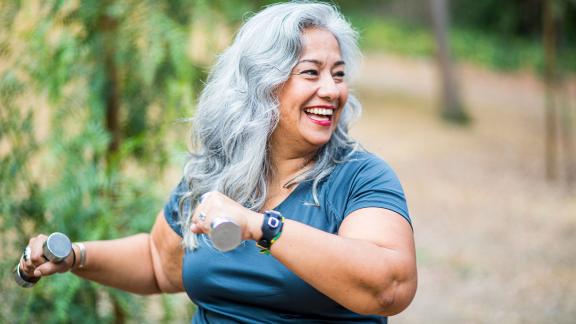Integrated care systems - to whom are you listening?

To make a fair and inclusive health and care system, we need to be talking and listening to everyone. Christiana Melam describes the importance of lived experience and role social prescribing link workers play in that.
Integrated care systems (ICSs) are required to be evidence-informed, gathering intelligence on the experience and aspirations of people who use care and support, with clear approaches for how these insights will inform decision-making and quality governance.
But if we are really serious about reducing health inequalities, ICSs need diverse mechanisms for gathering intelligence and engaging citizens. Mechanisms that ensure that all voices are heard, not just those who shout the loudest or are well connected.
So how can ICSs bake this into how they operate? And how can they work more effectively with people and communities?
Avoiding implementation bias
The health and care system needs creative disruptive thinking to tackle inequalities
First, use existing infrastructures and systems partners to gather intelligence, but also do your homework. Now more than ever, the health and care system needs creative disruptive thinking to tackle inequalities and spare people from bouncing around the system.
Second, listen to those with lived experience and use the insights as part of your evidence base to inform your strategies. Lived experience is not the preserve of patients, their families or carers: those at the frontline, both clinical and non-clinical, have experiences to share, as do communities that are often seldom heard.
Social prescribing link workers can be a valuable asset in that regard. They support people experiencing health inequalities and employ an inclusive approach that advocates patient empowerment and enablement. Their experiences will be vital to inform integrated care systems. Black Country and West Birmingham ICS training hub, for example, has created a social prescribing link worker ambassador role to ensure social prescribing link workers' voices feed into the system.
This helps to circumvent a big issue. The problem with social injustice is that it can stereotype people into specific roles and by default, it silences their voice. They become invisible to the system and their contributions are not maximised as they should be.
If your ICS listening approach is not truly inclusive and based on lived experience, including that of social prescribing link workers, you risk excluding people and ending up with implementation bias.
Patient empowerment
Any healthcare strategy or policy that is not about empowering people to take control of their narrative could well do the opposite
So, when we have truly heard peoples’ voices, what should we be doing? We should enable and empower them to take charge of their lives. This is how we can truly reduce health inequalities and avoid ‘doing to’ people or becoming the ‘rescuer’. Any healthcare strategy or policy that is not about empowering people to take control of their narrative could well do the opposite.
This is an aspect social prescribing link workers do brilliantly. Take for example feedback from a recent case study: "She helped us get back on our feet after being sent from agency to agency and not getting anywhere. We both have hope now and feel less overwhelmed and in control of our lives”. We should support people to take control of their lives and gather intelligence from social prescribing link workers on the barriers and gaps.
We can only level up care and reduce the burden on the NHS by empowering people to take control of their narrative.
Question for ICSs
I’ll end with three key questions for ICSs to consider how the voices of people and communities can be put at the heart of decision-making.
- To whom are you listening?
- How will you ensure the voices of social prescribing link workers are heard?
- When you have heard people's voices, how will you empower people to take control of their narrative?
One of the four aims of ICSs is to help the NHS support broader social and economic development. This is intrinsic to the other three aims.
Christiana Melam is the chief executive of the National Association of Link Workers. Follow her on Twitter @Christy_Melam



